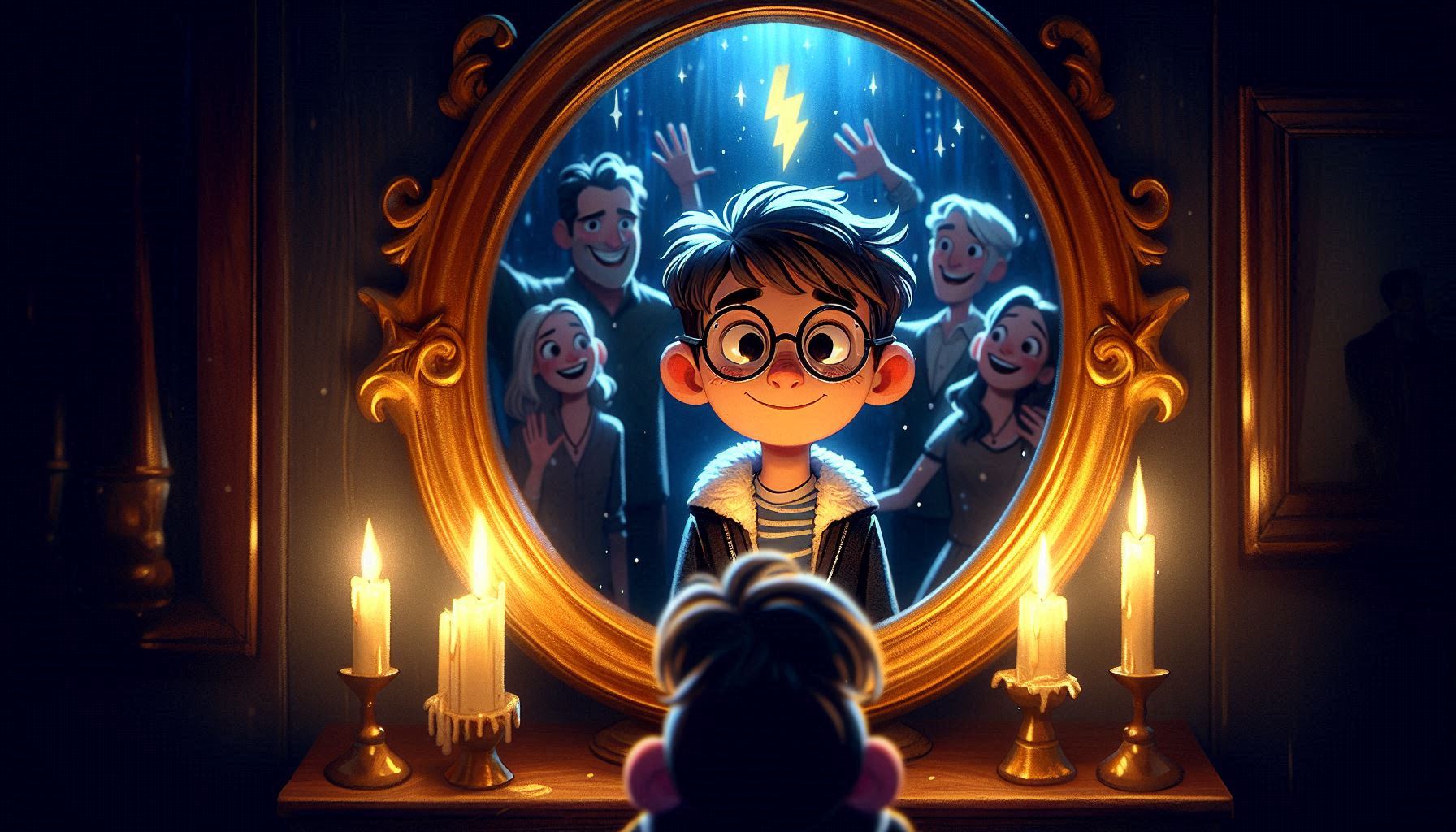The Mirror of Erised

"The Mirror of Erised is an ancient, ornate mirror. "
" The mirror shows the most desperate desire of a person's heart, a vision that has been known to drive men mad."
First and foremost, let me start by stating how much I despise the fact that ancient thinkers used to refer to humans with the word "men". As if only men are capable of thinking or possessing noble virtues. Now that we got this out of the way, let us jump into our main topic.
What's up with this mirror? Well, I didn't know about it until recently (last week), but it made my experience on of my favourite moments. The moment when you are doing something that is really just a normal activity like watching a movie or having a chat with a friend, and suddenly and out of nowhere, one word could throw you out of that situation. You enter a state of deep thinking because you perceived a different meaning of that word. Or it shouldn't necessarily be a word; it could be a scene, a sentence or an idea.
I know, I strayed from the topic. You are probably itching to know the story behind the mirror.
According to the quote above, this mirror will show us our most desperate desire. So, we look into that mirror and whatever is the thing that we truly and deeply wish that we could possess will appear. Although this is very interesting, the twist is yet to come. Dumbledore in Harry Potter and the Philosopher's Stone, says that the most happy person in existence will see only herself/himself (to be honest, he said "the most happy man" and not a person, but you know what I think about that now). This is what made me stop. He meant that the most happy person needs nothing. Nothing at all but himself/herself. This is not something new. I have heard many people talking about how happiness is in letting go of things, people and possessions that hold us back. But many of us simply don't realise it. There is a huge difference between knowing something and acting it out. Knowing doesn't equal action just as intelligence doesn't equal wisdom.
For me, I think that there was pure and beautiful wisdom that went into the creation of the scene. And that also triggers another question; is there such a thing? Did anyone reach this state? Can a human being truly live without needing anything but himself/herself?
I don't think so. The things we need are countless and our greed makes things even more complicated. I think some of the most wise and most powerful humans that ever lived could only get closer to achieving it, but never quite made it there. Happiness is unreachable, or else why would we be struggling for thousands of years to find it?! And why would we have an infinite number of ways to reach it? When I read the writings of old wise humans, more often than not, I come across two utterly contradicting advice about how to reach happiness. Both of them would be pointing in opposite directions. How is that even possible unless we factor in the fact that we, as humanity, may not know what happiness is? Or that happiness is completely subjective.
Personally, I would go with the latter, because, despite being interesting, the first option is terrifying.
You must be logged in to comment. Login here